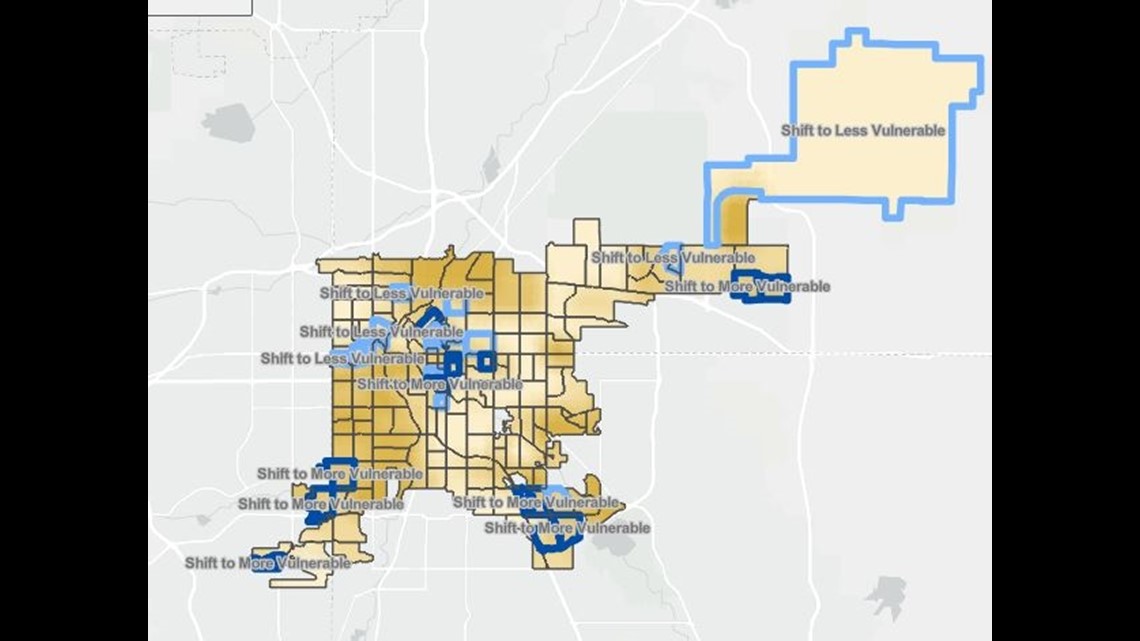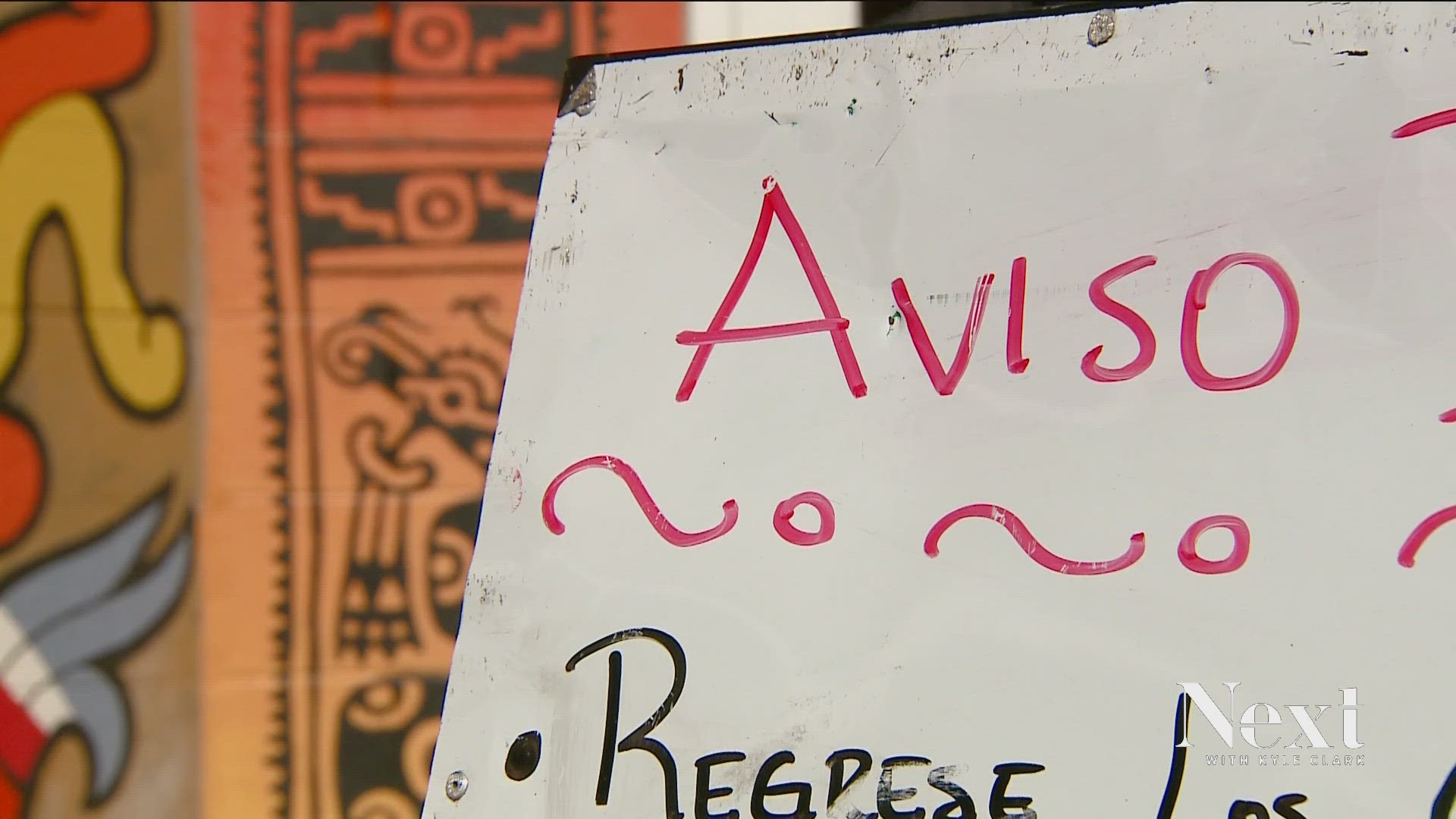DENVER — Nestled in the heart of Denver's Westwood community, nonprofit Re:Vision has been serving hundreds of families each week by growing and distributing food from their urban farm to residents mainly in the 80219 area code.
As the community is changing, Re:Vision is also expanding its goals to meet its needs. Ongoing concerns about gentrification have led them to work with the Urban Land Conservancy (ULC) to develop affordable housing units on their campus off of Morrison Road.
"There's a lot of Latino people here in this community," said María, a staff member who also works during Re:Vision's food distribution. "There's a lot of need in this area."
Re:Vision generates more than 80,0000 tons of food every year from its urban farm and family gardens, which are installed to create healthy food options for the community situated in a food desert.
700 families rely on the food distribution service every week. With roughly five members per family, about 3,500 people are served each week with the no-cost grocery model. Now the nonprofit is turning its attention to expand into housing.
"We are getting into a situation where folks are being priced out of this community," Re:Vision Executive Director Mariana del Hierro said. "I think it is matching the larger development across the Denver metro area. This used to be one of those last places where folks were able to access affordable housing, affordable rent costs. But we are seeing those shifts."
Re:Vision is partnering with ULC to create affordable housing units, allowing families who are currently concerned about getting priced out of their community a way to stay.
"I think that could be a great mark of achievement, to really feel like it meets the community and its desire and its history and its future," said Sarah Harman, senior vice president of real estate with ULC.
Harman says ULC and Re:Vision are still in the early stages. They plan to release a request for proposal, and in turn the developer will front the funding to turn the plan into reality.
"We like to deliver market quality housing at prices that become more accessible to folks in the community," Harman said. "Through focusing on a cost that is below the norm, a lot of people are able to find that that is a great anchor for economic stability and vitality for their future households."


The City of Denver is currently tracking neighborhoods that are considered vulnerable to displacement.
Based on the metrics of Blueprint Denver Key Equity Concepts 2024, Westwood has a three out of three vulnerable rating score in all parts of the neighborhood. It means that those with less education than a bachelor's degree, those who are renting and those with a median household income level are all vulnerable to displacement within the neighborhood.
Based on their housing diversity data, the neighborhood has a diversity score of four out of five. 78% of residents in the area identify as Hispanic or Latino, according to city data. 62% also speak a language other than English at home, with more than half listing Spanish is their primary household language.
"So being able to provide affordable housing means that we are able to continue preserving our community, continue preserving the work of the people that we work with, and we serve," del Hierro said. "So that we can continue to serve our community in that sense but also to preserve our community."
ULC and Re:Vision are still working together to identify a developer to take on the project as well as a timeline for when construction will be started and completed.
SUGGESTED VIDEOS: Next with Kyle Clark

